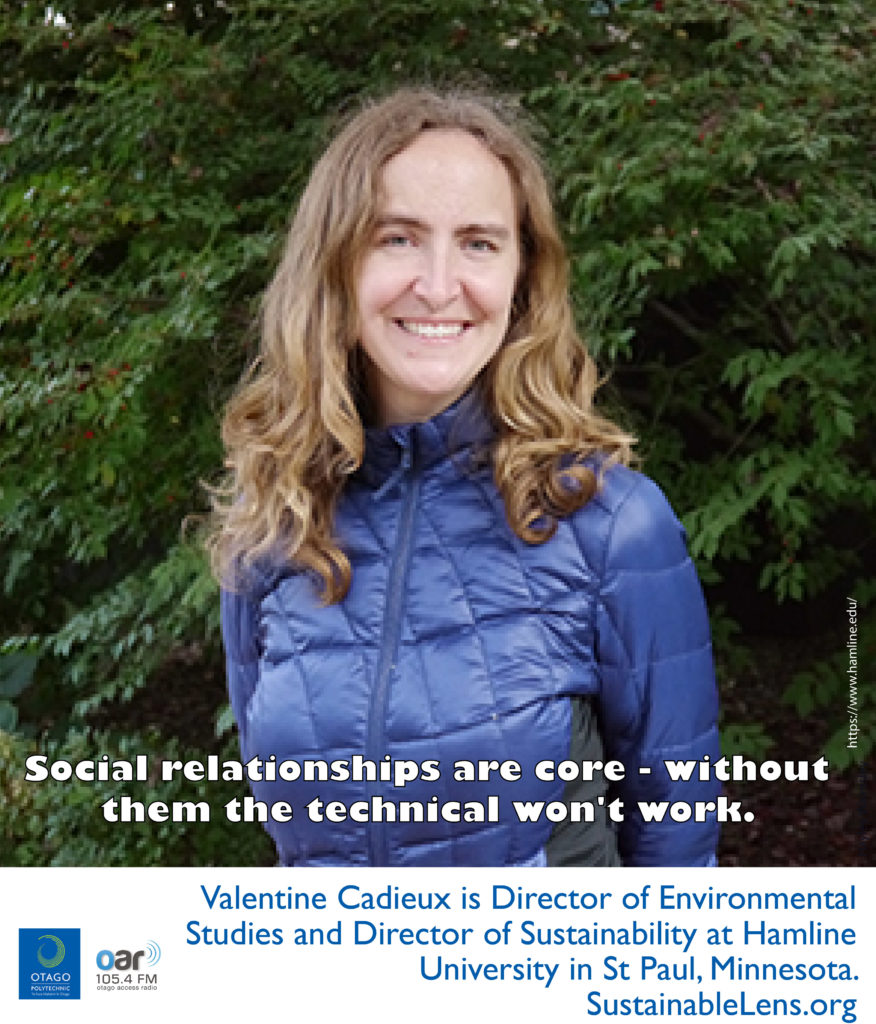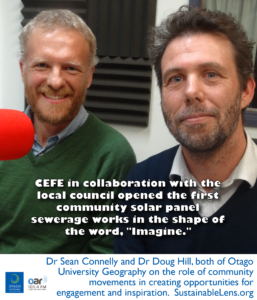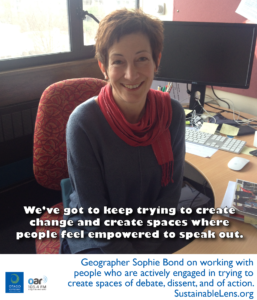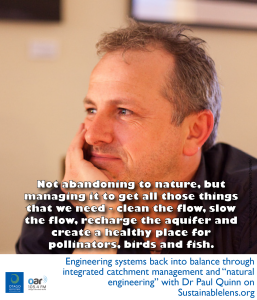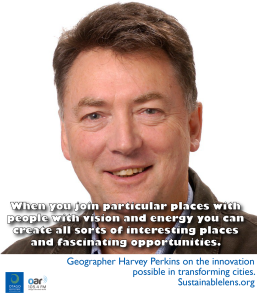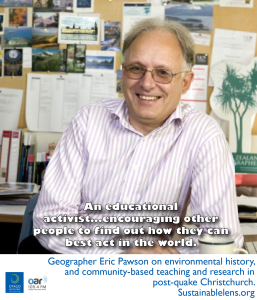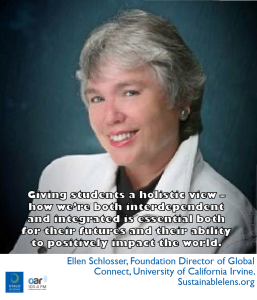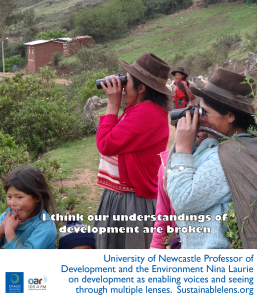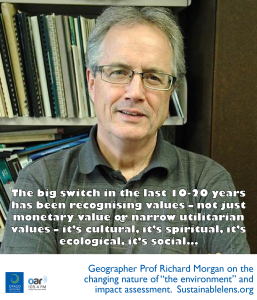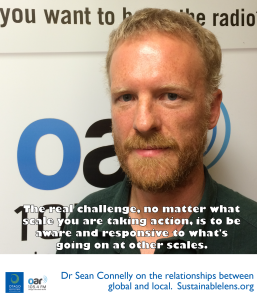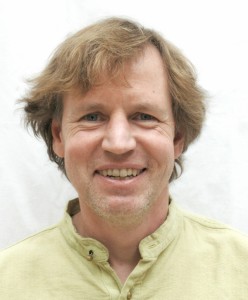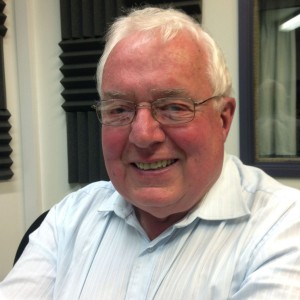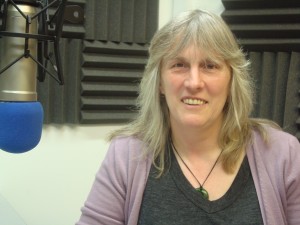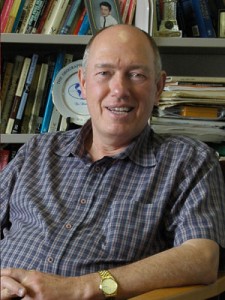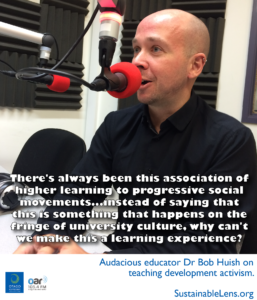
There’s always been this association of higher learning to progressive social movements…Instead of saying that this is something that happens on the fringe of university culture, why can’t we make this a learning experience?
Our guest tonight is Associate Professor Bob Huish from Dalhousie University. He’s part of the International Development Studies Department at Dalhousie, and a recipient of the 2015 Insight Development Grant from the Social Sciences and Humanities Research Council in Canada.
His research explores ways in which social activism can lead to comprehensive development outcomes. He focuses on global health inequity and the role of activism in bringing about improved provision of healthcare and resource poor settings. Beyond community based health advocacy, he examines how medical education acts as a determinant of global health and equity, particularly with regards to Cuban Medical Internationalism.
It is well known that while many diseases favour the poor, the ability to treat and prevent illness tends to favour the affluent, and we’ll talk about that a little bit later. He pursues research about the pedagogies of activism and the organization of social resistance. He also explores the role of sport for development with special attention to Cuba and how this facilitates comprehensive development as well as organized forms of resistance.
At the moment, he’s currently working on following four areas, might be some more when he talks about it a little bit later on: Cuba sports internationalism solidarity, the pace of activism in the future of the university, global health assets, and human rights activism in North Korea.
He’s presenting a lecture entitled, “Out of Sight, Out of Mind, Out of Bounds.” Dark connections between offshore capital sanctions and human rights abuses in North Korea, which sounds very exciting there. It’s on the 14th of September at 1:00 PM, it’s in St David St lecture theatre. You also have one on Tuesday, which we just found out about before the lecture at 5:00 PM on Tuesday. I’m going to talk to you about that in a second.
You’re also currently the Ron Lister fellow in the Department of Geography, the University of Otago, which is why you’re here. Welcome to our show. Welcome to New Zealand.
Bob: Thank you very much. I’m delighted to be here and loving being in Dunedin.
Shane: This all sounds really fascinating, but tell us what the lecture you’re giving on Tuesday.
Bob: Tuesday is the Ron Lister Visiting Fellow lecture. That’ll be at 5:15 on the campus. I believe it will be in room … I’ll find it for you.
Shane: You find it and get back to us. (Burns 2)
Bob: Yes, I’ll get back to you on that. It’s going to be talking about some of the research I’m doing involving North Korean human rights. As geographers, as the department of geography, we are all about going to places, experiencing that place, learning about the land, the life, the interactions. What I’m talking about on Tuesday is as a geographer, how do you research a place that you cannot go to, that is totally forbidden.
To go to North Korea, if you were there as a tourist, you would spend about €4000 for a week there, and you’d be given this veneer tourism. If you were to go in there illegally, you would risk your life. It’s very hard to get to see the realities of a place like that. Yet we know that this is an area that requires both scholarly and moral attention. How do we address it? That’s what I’ll be talking about on Tuesday night.
Shane: That sounds really exciting. Before we get into that, this is just absolutely fascinating stuff for me here. These are really, really interesting topics. We’ll go back and we’ll talk about, you grew up in Canada, I take it?
Bob: I did, yes. Six generations, Canadian, both sides, mother side and the father side.
Shane: Where in Canada were you brought up?
Bob: I was brought up in a place called Wasaga Beach, Ontario. Wasaga Beach’s claim to fame is that it is the longest freshwater beach in the world.
Shane: Wow. Was that mean that you spend lots of summer evenings down on the beach?
Bob: Absolutely. It’s a place where you have 18 kilometers of pristine beach. It’s inimitable. Then a couple of areas of the beach, we would let the tourists come over and take over and destroy the place, but we would maintain at least a good 16 kilometers for local activities. Now it’s a provincial park that’s protected for environmental sustainability as well. Lovely spot.
Shane: Is this what got your interested in geography? What made you become a geographer? Was that something that happened in school, or is it just something?
Bob: It was. I grew up wanting to travel and explore and take photos along the way. I remember telling the guidance counselors at the high school that I was going to either be a pilot or a National Geographic photographer. To be a National Geographic photographer, good luck. All the best to those to do it, but it’s a very competitive field. I figured a pilot would be a good way to see the world. When I went in for my medical test at the age of 16, the physician who did the test, you go through a few things, gets onto the eyes and he takes out the colour blindness book, and I’m seeing numbers that he doesn’t.
I remember him laughing out loud about how hilarious this was. I just saw, at the moment, my entire career and future just fading away. I went and talked to a high school teacher, Dave Knox, who had a radio show himself, avid rock and roll fantastic, but also very dedicated geographer. He pointed me in the direction in geography. It’s a field that will, pardon the pun, but it’ll take you places. I’ve stuck with it ever since.
Shane: Brilliant.
Sam: Shane’s always incredulous that people want to be geographers. We of course understand why you’d want to be a geographer.
Shane: It’s just that in school, it’s taught in the most boring way. Once you get to university, it resembles nothing compared to what you did in school. I’m always fascinated by this, physics is natural continuation but … Did you get frustrated with how high school teaches geography?
Bob: At the time, I was fortunate to have some really good high school teachers. Dave Knox was one, this other guy, Wayne Hunwicks, he was a fantastic teacher. I was really fortunate to have that growing up. Now looking back, to look at what a lot of geography is presented, in Canadian high school, I can speak to specifically, there is a disconnect. I think that when students come into university and they have an idea of what geography is in terms of making maps and capitals and mountains and ice and whatever else, to see the rich context that geographers, researchers and university professors bring to the table, it can be a very uphill battle for students in the first year or so.
Then once you realize how appreciated geographic research is in other disciplines, it’s incredibly rewarding.
Shane: Yeah, you always just think it’s like what you learned in school….boring, but it’s not, it’s just absolutely fascinating and really … You examine so many different areas of life. Let’s rush on. You obviously got interested in health.
Bob: Yes.
Shane: How did you get interested in health?
Bob: It was when I started doing work in Cuba. My Master’s project involve trips to Cuba to do work there. It was more in a historical, cultural geography framework. When I was in Cuba on the first day of arriving, this would’ve been April 30th. Still a bit chilly in Canada. You have a group of Canadian students who are coming down to the Caribbean for the first time, and we are exposed to this beautiful Caribbean sea. The first thing you want to do is jump into it.
No matter what culture you’re in, what language you speak, a red flag on the beach means what?
Sam: Danger.
Bob: Stay out of the water. Next thing you know, I’m the first guy in. It was this wave that came up, crashed over me, over my head, took me down and did one of those things where you’re corkscrewing. Smash, right into the rocks. I had my shoulder hanging open. I remember crawling out with one hand out of the beach and these two guys come in and they say, “we’ve got to take you to the hospital, man.” I thought, “I don’t want to go to a Cuban hospital, this isn’t what I want. It’s okay, I’ll walk it off.” You look over and the shoulder’s gaping.
They put me in the back of a ’53 Oldsmobile, picked up another guy who’d cut his foot open on a beer bottle, and we went straight to the hospital. We were both stitched up, cleaned up and out the door in 20 minutes. The next day, a nurse actually came by the hotel and said, “Hey, how’s that guy with the shoulder?” This was a time when some of the most wealthy and affluent countries were exercising extreme austerity on their healthcare systems. To me, being in a resource poor country that has many democratic and social problems, to extend that healthcare to a foreigner for no cost really resonated. I wanted to know why that was.
From there, it opens up a whole new area about what is healthcare, why does place matter to it, what can we bring to learn more about how this experience can be repeated.
Shane: Do you ever reflect on that one moment possibly changed your whole direction of your career?
Bob: It definitely did. What I did was I went back and started to do research in Cuba for a few years. After that moment, I started to look more about the health indicators. You see that in almost every category, Cuba, whose economy is not that great, especially then, it was in line with Mozambique and Vanuatu in terms of economic growth, but its health indicators were outperforming most European countries, certainly outperforming the US and Canada in many regards.
When you start looking at the data about what their health indicators are, their capacity to train physicians and nurses, their approach to health, not as a product of a physician’s craft, but as being produced from issues of community sustainability, that opened up the whole gates. That’s what I’ve been doing ever since.
Shane: That’s quite a different fundamental point of view approach to healthcare and approach to community and approach to resource allocation. What have you learned from that? You’ve probably learned huge amounts, but what main teachings have you got from that?
Bob: When I offer my course on global health in Canada, the first question I ask my students is to define what is health, just to define. You’ll get a few answers that’ll come back. It could range from the absence of illness or to have good functionality as an organism. Some people will identify that it’s the broader conditions that maintain health and well being.
If any of your listeners have an iPhone or a dictionary on their tablet or computer right now, just punch in what’s the definition of health. It will probably come up in just a regular dictionary, the absence of illness. I find that very interesting because no other definition in the dictionary defines something for which it is not. You do not identify an apple as not being an orange.
We have structured so much of our attention on understanding what health is, as being the absence of illness. We really don’t understand what maintains and produces health in the first place. It goes far beyond bio medicine and it has a lot to do with social equity and justice, social movements and the ability for people to take care of each other. That’s a really important and under explored area for health and health studies.
Shane: Did the revolution in Cuba and the focus on community and … Do you think that produces that different philosophical framework?
Bob: Absolutely. When you look at what the Fidel Castro, Raul Castro, Che Guevara, Camilo Cienfuegos, those guys, when they got into that, it was about agrarian reform, it was about land redistribution. That was their movement. There were other movements in Cuba. There was an urban movement, there was a student movement, there was a communist movement. They all had different goals.
With the Cuban revolution, the first thing was land reform, and then education, and then health. It wasn’t until 1962 that Cuba officially nationalized its healthcare system. Now, it’s one of the greatest drivers of its economy. It’s opened up doors around the world, even to warm up relationships with the United States. Initially, it wasn’t the focus. The focus was to try to get access to resources and education for the poor, and then from there, build health capacity.
Shane: On reflection, is that the right order to do it in? I think a lot of people keep saying, how do you best promote healthcare? I think your dad said this, Sam, was about having educate first, and then the health improvements go in. Remember that conversation we had? Is that something that you would agree with? Is that order right?
Bob: Yeah. The fact that if you look at how our health systems operate around the world, they’re usually there to make sure that there is good employment for health workers and that patients don’t go bankrupt in the process. Most well functioning healthcare systems follow that guideline to a degree. Very few of them really look at health promotion and disease prevention in the same close net, well organized sense.
When you look at a lot of health promotion material, it’ll often deal with individual behaviour change. Don’t smoke, try to drink less, exercise, et cetera. Just look at the smoking factor, for example. You walk into a doctor’s office, they’re going to ask you if you smoke, no matter what it is. If you have a cut on your toe, are you a smoker? That’ll come up. We know that in most societies, it’s the poor, the people who are the lowest income brackets, are also the most frequent and heavy smokers. Why do we look at something like that in terms of individual behaviour change and instead of seeing this as an issue of equity, of demographics, of income inequity, of social equity?
If you re-approach the question that way, you may be able to find strategies that are more effective than simply putting up bus ads to encourage people not to smoke.
Shane: It really is very much community based, equity. What can the west learn from this?
Bob: Let’s go back to Cuba for a minute. Some people call it the Cuban paradox, where you’ve got such a low income on a national level compared to wealthier nations, yet their health determinates right across the board are fantastic. One theory is that the levels of income aren’t that great in Cuba. The person who earns the top and the person who earns the least, there isn’t that great of a differential between the two. There’s some research on that that came out of the Whitehall Studies in the ’60s in the UK that tried to look at how income differences matter.
Then evolving from that, there’s another theory that says that really, it’s about social equity, it’s about class and hierarchy, and your position to have sense of responsibility, autonomy and control over your livelihood, that that matters a lot more to health than differences in dollars and sense.
Shane: This is the work the Spirit Level Address looked at. Of course, they’ve done more research since.
Bob: Exactly. In the Cuban case, there’s a lot of evidence to show that because it has that relative level of social equity, they’ve been able to produce these health outcomes in a way where people have a better sense of health, and hence their health services are not invested as much as other systems are in repairing people, as opposed to maintaining that health. Now, with increasing inequities arising in the country, this could be something that will be a challenge that they’re going to face.
Shane: I was looking at the … You’re talking about sports for development and how it’s being used as a way of, in Cuba, to promote social equity and development. I reflected on, that sounded really like the GAA (Gaelic football).  In the sport and revolutionary movement skills, it reminds me of the GAA in Ireland at the end of the 19th and the beginning of the 20th century when it was really a front for the … A way of getting people involved in the Gaelic revival movement, and then obviously involved in revolution, their war of independence.
That’s really interesting. What did you learn from that? How does Cuba use sport, and what sports do they play?
Bob: What’s really interesting about Cuban sport is that you look at the Olympic medal county, Cuba and New Zealand are right next to each other, where they ended for medal counts. They usually punch above their weight quite a bit when it comes to elite sport performance. The other factor is that about 95% of the Cuban population at some point in their lives, participate in organized sporting activities. This could be off to a gymnastics school or a baseball camp, something in that way, or if you’re ever in Havana and you’re up between 6:00 and 7:00 in the morning, you’ll see these, they call them grandmother circles, where you’ll have the seniors coming out and doing tai chi and yoga in the park on a daily basis.
The encouragement that people are active in sport is a very strong national value in Cuba. It’s done in a way where you want to encourage as much participation as possible. Community level stuff where it’s participatory. Then from there, begin to offer streams for advanced elite performance. That’s very different, how a lot of countries, Australia and Canada in particular, groom their elite athletes. It’s usually, you take a lot of money and you invest in a few athletes who are likely to perform at certain sports well, rather than actually trying to draw out elite performance from national participation.
The other thing is that when you retire, if you’re an elite athlete, you still have an occupation with the Cuban ministry of sport. You become a coach, you become a teacher, you’re not unemployed looking to do something different when it’s done. You are still part of the system. It’s a lifelong career to be I sport in Cuba.
Shane: Do you think those systems will fall apart as it opens up?
Bob: What I find very interesting is that there will be some changes, of course, to Cuba. Where they’ve put their attention and emphasis in their development stream is by investing heavily in education and healthcare. That includes sport, sport’s a part of that. In the 1990s when they lost 35% of their GDP, 87% of their exports in 1992, 35,000 people went blind due to the lack of vitamins, the average Cuban male lost 40 pounds, that’d be 20 kilos or so, in a year. They thought the whole show was going to end.
Where most countries that were faces economic crises at the time, where they created this austerity that went into health and education in particular, Cuba expanded schools, expanded hospitals and expanded seats for medical students, and they offered scholarships for foreigners to come in as well. Fast forward 15, 20 years, and now you have at the forefront of their economic growth is a provision of healthcare services to other countries. Now you’ve got 36,000 Cuban health workers working in 66 countries around the world. In some cases, when they do partnerships with the Gulf states, with South Africa, they get quite a good amount of remuneration for that. When they partner with Haiti, nothing. They do it for charity.
The country of the Gambia, I love this one, where the Gambia had a malaria crisis in the early 2000s, late 1990s. They said, “We need to get on this. Cuba, can you help?” “Sure, what would you like?” “We’d like doctors.” “We think you need a medical school, so we don’t have to keep sending you our doctors all the time.” 250 Cubans come in, they build a medical school, they provide community care, they address malaria in this way where you had 600,000 cases in 2001 down to 200,000 cases by 2006, and now it’s under 100,000 cases a year, which is an amazing decline.
When they start talking about what can you give us back for this work that we’re doing here, Gambia, who was quite broke at the time, said, “Do you like peanuts? We have a lot of peanuts. We export peanuts. We can give you preferential trade deal on peanuts.” Sold. Then later, third country partners like Taiwan and Norway came in to offer financial assistance with those projects.
Shane: Wow. That’s incredible.
Bob: It’s a shockingly different way of thinking about foreign aid, about what global health is, and about the importance of actually creating capacity within communities, as opposed to just always doling our or giving out extra resources in that way. Those doctors who worked in west Africa and Cuba carried on, other delegations have come in. If you go back to 2013, 2014 when Ebola was kicking off in west Africa, it was the Cuban doctors who were already there on the ground, and then another 600 showed up to go into the red zone to be the only medical work force to provide that number of physicians on the ground.
Sam: You’re talking next week about researching a place you can’t go to.
Bob: That’s right.
Sam: What gave you that idea?
Bob: Here’s the connection between health and what we’ll talk about in a minute about North Korea, is that on one sense, on doing work on Cuba, people would colloquially just compare Cuba to North Korea, and then I would grumble and get frustrated. That was always on my back radar. When you look at how these advances in health promotion or anything, really, foreign, it’s usually by people demanding it. Well organized, committed individuals who make these demands for program design and for such developments.
I wanted to offer a class on social movements, activism and social justice, and I did. It’s one where we have students actually going out, hitting the streets, and protesting for concerns that they have. The university in Canada, they were a little concerned about what topics would be fitting. I was trying to guide people on topics where there would be no moral opposition. I read a book about the story of a defector from North Korea. His story, I devoured it and I thought, students are going to love it. We turn it over to them, they did love it, and they wanted to start protesting about human rights in North Korea, figuring who in the world would object to that.
Once you start seeing how grim that reality is, away we go. We were out protesting, aiming at world leaders who were coming to our city of Halifax for a security meeting, and we just said, “By all means, have your meeting, but if you’re going to talk about security, don’t forget human security. Let’s talk about people who are in need now.” We’ve done that for four years, and in that time, North Korean defectors have reached out to us for support, for opportunities to tell their stories, to do research projects together, and it’s carried on since then.
That switch over to this world of social justice brings me to working with North Korean defectors. The very difficult part about that is that North Korea is a no go zone for research, as I’ll be talking about next Tuesday. The amount of published articles on North Korea are shockingly few. There’s no topic that is this understudied. It’s a topic where it’s just shrouded in mist and rumors and deceit and intentional mistakes, where defector testimony that comes out from North Korea is usually incorrect. The satellite imagery is not as accurate as we would like it to be. The politics of this place, we don’t fully understand. Everything is a black box.
For myself, someone who’s publicly helped and supported North Korean defectors and spoken out against the regime, if I was to go there, that would be the end of me. It’s a place where you cannot go, but you know there’s something important to be studied and explored there. The question is, how do you do it?
Shane: that’s really interesting. You talked about how health is normally … Better health outcomes is demanded by the people, and North Korea is a communist country, and so is Cuba. You’ve already said …Â communist countries. First part of the question, did Cuba, was that focus on developing healthcare, was that done by the leadership or by the people, and the second question is, what is the primary difference between Cuba, which has done this amazing thing with its people, and North Korea, which seems to be doing terrible things to its people.
Bob: Absolutely. The first question is about where did Cuba’s medical system come up. The real foundations to it were in 1962 when they passed a bill to say that physicians could no longer bill patients directly for medical services. Mirroring exactly what happens in the UK and Canada and elsewhere, and even proposed by the Kennedy administration at the time in the states. It wasn’t too radical by any means. The physicians in Cuba took off. Of a workforce of 6000, they were suddenly down to just under 3000. You had 256 teaching faculty at the University of Havana in 1962, by 1965 you had 14.
That exodus of that medical expertise, because Havana was well known for medical expertise in the ’50s and ’40s, left this void, this vacuum, of a new generation of doctors and medical students that built the system up based on the values that you have today. It wasn’t ever put in the hands of the top leadership to say we have this miracle vision that we’re going to drive it. It was always about impact and feedback from both physicians and patients in communities to meet their needs. It’s been a very elaborate process.
This is where you see that to label something as just communist, may be accurate in terms of how their government’s organized, but there’s a lot of flavors of communism, from the mild version to the absolute toxic. With Cuba, you see that they’ve always had this ability to have feedback from communities to the representatives in government. Sometimes it’s slow, there’s a lot of inefficiencies within there, but there is that value of human security that comes out.
When you look at North Korea, a country that leadership in Cuba did not visit until 1995, “We don’t want anything to do with these guys, this is a different flavor.” It came up almost by accident, where you had a leader rise to power, Kim Il Sung, who read the Stalin Playbook, same thing that happened in the eastern states in Europe, where that form of governance was about trying to create a cult of personality, kill your enemies, kill your political opponents, and get orders top down.
You see it almost operate more as a feudal system, where you have this elite in Pyongyang that want for not. Below them, the loyal class who are pretty well taken care of. Then, they have a wavering class and a hostile class. That’s literally what it’s called. It’s called the Songbun system, it’s a feudal form of control where you have those three major classes derived in about 50 or so subgroups. The government there realizes that most of the people that are under its control resent it terribly, and there are these systems of control in place wherein if you speak out against the leader, it’d be considered a political crime, you will be going to a political prison camp. Your family will be going to a political prison camp. Any children you have will be going and any children they have will be going as well. Three generations of punishment.
Nothing that nuts has ever existed in Cuba, even in what they call the four gray years, the 1970s, where if you spoke out against communism, you maybe had long hair and listened to rock and roll, you’d have the moral authority police come over and give you a stern talking to. There is some determinant that also took place in Cuba in the ’60s and ’70s for people who deviated. Now, no. That’s about as far away as it can get. A lot of scholars in cube recognize how twisted the North Korea system is.
It’s a different world.
Sam: I’m going to change topics slightly. You talk about deviation. You teach a course, which is called Development and Audacity.
Bob: Yeah. Audacity development, development activism, yes.
Sam: How did you manage to convince the university to let you teach something with that title?
Bob: Yes. Just to be clear, we’re talking about my university back in Canada, Dalhousie. When you offer a course as a one off, nobody really pays attention to you. Special topics. Then if it gets popular, as this one did, and we took it not just from a one off topic, but to a calendar course and then a degree requirement. Then that sat before a committee called the Academic Development Committee where they had visions of students running riot in the streets and just losing it.
I got called in and the dean is there, and other members of this committee are they. They start asking questions about, “What happens if there’s a radical takeover of your class by a fundamentalist student?” I said, “I guess we call the police.” “What happens if a student wants to burn a police car?” I said, “Look, I don’t know how to do that, contact the chemistry department. They’re the experts.”
This banter went on back and forth and I said, “Look, you guys are missing the point. If you look at history and you look at the history of social movements, universities have always had a fundamental role in that.” When you had students in Tennessee and Mississippi taking over lunch counters, they were organized, they were taking seminars on nonviolent resistance. It was faculty who were leading that. You see this from Martin Luther to Martin Luther King Jr. There’s always been this association of higher learning to progressive social movements. The women’s suffragettes in the US in the early 1900s, all university students. The guys who kicked off Tahrir Square in Egypt, university students. The guys who overthrew Milosevic, university students.
Instead of saying that this is something that happens on the fringe of university culture, why can’t we make this a learning experience? Again, people dithered on it and they weren’t too sure, but ultimately, when you have a class of 35, then you have to expand the enrolment to 60, and then 75, and then 80, it becomes very financially attractive for the university to make sure that course stays on the books.
Shane: Did it end up being a degree requirement?
Bob: Yes, it is.
Shane: Can you require all students to be an activist?
Bob: Absolutely not. By no means is that course the minting process to be an activist. What it is is it gives students the opportunity to engage with it in real time, to look at what goes into the organization of a social movement, to create a scenario that we’re going to go out and make our demands known to people in government and try to get the attention of others in society. That doesn’t just happen by swinging a picket sign around on a crowded street. We have to plan about this, we have to think about it, then we have to reflect on how this is impacting our politics today.
Why are some social movements so quick to be recognized and embraced and others quickly dismissed? It gives students what we call experiential learning. The ability to witness, experience and engage in this process, and then form their own structured thoughts that connect the literature to that experience. That’s really it.
There’s been cases where we’ve had students from the military who are under Canadian military code cannot protest. They can’t do it. How do they get through? We set up roles for them as researchers if they want. Others who have objected to it. Students who come from South Korea who are on a working Visa and they say, “I don’t want anything to do with messing around with North Korea, man. This is too hard.”
There’s always accommodating at every turn. That myth that activism and social movements are somehow naturally organic, that they don’t require leadership, that they don’t require dealing with interpersonal skills at a community level, that’s a dangerous knowledge. If we realize, we really realize that if you have a small group of well organized people put together, and be they’re committed to it, you can intimidate a regime like North Korea, in places where other governments have failed. You can demand things like better equity, better social justice, better healthcare.
It’s a very, very powerful force, and most world leaders, governments, businesses, are quite intimidated by activism. In one sense, it can be a very powerful tool for change, it can also be something that can go right off the rails and lead to far worse consequences.
Sam: If you could have a whole degree in it, would you do it?
Bob: I think that idea would be fantastic, but we would need a big team of teachers and experts to get through that. We would need philosophers, ethicists, city planners, historians, the geographers would be in there somewhere, of course, to really understand how this process impacts our world.
The other thing that’s really challenging about activism is that in that moment, when something is conflicted, there’s a tendency to label activists as being the outlaws, the troublemakers. Then you look back at history, the heroes of the day now were the outlaws of the time then. That’s a very difficult thing for society to accept.
Sam: Given that most of the students I would suggest aren’t going into societal roles where they are carrying on being placard waving activists, and lots of them are going into various businesses or government. Do you talk to them about how they can carry on that role?
Bob: Absolutely. We’ve had students come out of that class and have run as members of parliament, they didn’t win but they did it. That was good. The practical skills that come from this course are quite strong. They get into issues of advertising, marketing, campaigning, all of that. There’s a lot nongovernmental organizations and political parties who find value in that practical skillset. We all know that university education is beyond just practical skills, it’s about opening your mind to alternative ideas.
The feedback I receive from students down the road, who graduated the course, maybe they’ve gone onto a higher education degree, maybe they’ve gone into corporate sectors, some people work for law firms. They’ll write me little anecdotes to say that there are moments in their professional careers where they disagree with something, they disagree with authority, they disagree with how something’s being run. Instead of just ranting or grumbling by the water cooler or voting with your feet and leaving, they’ve actually been able to strategize, to create small change, even within their own workplace.
Others have, I hope, learned some of the value in organizing at a community level with issues that might be impacting their world.
Sam: Do you have a go-to definition of sustainability?
Bob: Sustainability, a go-to definition? I think in terms of social justice and activism, something that endures. In many ways, social justice movements can fall victim to having a lack of sustainability. At the same time, they can be very important in creating that sustainability. Endurance is really important. It’s often an uphill battle.
Sam: We are writing a book of these conversations, which we’re calling Tomorrows Heroes. We’re actually writing it, we’re not just talking about that, it’s actually happening.
Bob: Well done.
Sam What we’re trying to do is to look at the people’s superpowers and describing what is it that they’re doing, what are they bringing to this good fight. How would you describe your superpower? What is it you’re bringing to the team?
Bob: Oh my God. I don’t know if it’s a superpower, hope it’s not because it should be a contagious thing. I think that approaching these areas of study, what’s really important is to try to hold two opposing ideas in your mind at the same time. For example, next Tuesday we’re talking about creating change in North Korea, a place that you can’t even get to. That’s impossible, so let’s hold that thought of impossibility in the mind, and at the same time, be determined to make it otherwise.
That’s a big personal conflict, to see that things can be absolutely hopeless and yet still be determined to make change. It’s tough, you’ll lose sleep, but you’ll also have fun.
Sam: What’s the biggest success you’ve had in the last couple of years?
Bob: The biggest success. I think that making personal connections with the defectors in North Korea when they’ve needed help and helping them along in their way has been personally really, really important goal. There’s a lot of controversy that can shroud North Korean defectors if their testimony doesn’t match up or there’s errors in their details. There are still people fighting and have gone through a lot. To make that connection and form real friendships, I think has been one of the most rewarding factors that I’ve had.
Shane: What motivates you? What gets you out of bed in the morning?
Bob: There’s just so much to do. The thing is that I love my job. I realize how precious of a statement that is. I’ll grumble over things like that committee that took me in that meeting, but at the end of the day, having the capability to get interested in a topic and pursue it and have fun doing it, is the most rewarding thing. I wouldn’t trade that in at all. You get paid along the way, fantastic, but if you love what you do, you’ve got it.
Sam: There’s so much to do. What’s next?
Bob: The next thing to do is to give those lectures next week. That’ll be great. After that, my plan is to turn to writing a couple books about the geopolitics in North Korea, and also about testimonies that have come from North Korean defectors. They’re fascinating testimonies and what I’m finding very fascinating is how sometimes if there’s a … Which ones are accepted by society and which ones are not. There’s a bigger political reflection in there.
What comes next is continuing to offer students the opportunity for education in social movements and activism. I also run a course in Cuba for two weeks a year that the students have the ability to come down, see the Cuban development model firsthand. We have a fantastic administrator back in Canada who puts it together, I’m just merely the academic component. We turn it over to Cuban faculty to do the rest of the teaching. It’s a grand experience.
Sam: What are you doing in New Zealand?
Bob: The Ron Lister Fellow in the  Department of Geography, I’m having the time of my life. It’s been great. It’s been fantastic to have the space to work on some of these issues. I’ve been focusing a lot on the North Korea research, looking at an expiration of the literature on North Korea, tracking the movements of marine traffic coming in and out of the regime and identifying shady suspects, to spend time connecting with defectors. All from the comfort of Dunedin, which has been fabulous. It’s been a great space to get some research done but also just to connect with such a great group of people in the department at the university more broadly.
I also have become quite a fan of the curling club down at the ice stadium. If anyone’s looking to go for a curling game, it’ll be next Monday at 7:00, happy to teach you the ropes.
Sam: How are you finding the students that you are having contact with? are they similar to the Canadian ones?
Bob: There’s fewer of them. I tend to teach very big classes back in Canada. Sometimes, 200+. The ability to be in a class of 12, eight people is fabulous, because you get to know them. You get to know their interests and you can help feed them along, what their pursuits are about. It’s great, yeah. International, globally minded students that you get to know on a one on one basis. Love it.
Shane: Are they activists?
Bob: They’ll have to decide. Maybe not yet, maybe they don’t think they are, maybe they will be, but we’ll see.
Sam: We ask this question of everybody, and I suspect we can predict your answer. Do you consider yourself to be an activist?
Bob: I do. I certainly didn’t grow up in Wasaga Beach thinking that. That was pretty far flung. I don’t remember anything political in Wasaga Beach. It was a pretty calm place. Then moving into the university world, undergraduate mentorship with some good professors, students and friends along the way, yes, then it certainly grew. I think that’s an important aspect to identify, to carry those messages both into research and into teaching.
Sam: There’s lots of arguments for not being an activist.
Bob: But is it possible to not be an activist, is another way. By not having an opinion of something, doesn’t necessarily mean neutrality. It could mean actually supporting injustices in a quiet way, as an advocate.
Sam: Do you not lose objectivity?
Bob: In which way?
Sam: By being an activist.
Bob: That’s a tricky game. Activism involves emotion. Objectivity is supposed to be free of emotion. Again, to balance perspective with what you feel is your own personal conviction is a skill building exercise. That’s what I mean, that we should take time to reflect on what goes into it. If you’re going to engage in politics of the street, you can acknowledge that they’re incredibly powerful, but at the same time, there are rules to that game. There are certain things that work, others that don’t, and how you create that engagement matters a lot on how you balance your own personal conviction to objectivity of the subject.
Sam:Â Is it perhaps easier being an activist about North Korea, because it is a place you can’t go to, there’s this thing over here and you’re objecting to it, but then you can go back to your normal work. Would it be harder to be activist against, I don’t know whatever your local major industry is, you have to deal with those people in the supermarket, it’s close to home?
Bob: Yeah, that really is. That’s the case. When you’re dealing with something that’s far away, even though you make real connections to those places, there’s that certain amount of anonymity that go to it. When you are dealing with something not in my backyard or you’re engaging something in real time, be it a labour dispute, be it a pollution issue, whatever it is, there will be people who are in your face a lot more that’ll try to wear you down.
It comes back to that issue of endurance. When you want to engage with North Korea as a researcher here in Otago, I can do that according to my schedule. If you’re an activist here in Otago and you’re taking on issues in Otago, you may not have that luxury. That’s absolutely a part of it.
Sam: Although if you’re doing something locally, you have the opportunity to bump into those people at the sports field and various other places, you can actually talk to them.
Bob: Very much.
Sam: Do you think that the university should be activist?
Bob: There’s always going to be activism on university campuses. That’s always going to be the case. In quiet ways and in loud ways. The real question is, how does the university deal with it? It is something that happens on the fringe? Is it something that can be brought into the classroom? Is it something that can be studied and analyzed? Is it something that even administrations can support and market?
It really depends about what that institution wants to do with that phenomena, because it does exist.
Sam: Should a university have a statement on North Korea, climate change?
Bob: It wouldn’t hurt. It really wouldn’t hurt because the pressure’s there. With climate change, there’s a lot of campaigns in Canada right now for universities to divest, get out of fossil fuels all together. That’s being pressed upon a lot of university administrations. There are universities around the world that do have memorandums of understanding with the Pyongyang University of Science and Technology, a place that’s been famous for producing internet hackers.
There are these academic exchanges and there needs to be some questions asked about how ethical those are. My university in Canada, two years after running the course, we actually put a proposal in to nominate Shin Dong Hyuk, who is the only person we know of who was born into a labor camp to have escaped for an honorary degree. To our knowledge, he’s the only North Korean defector who has an honorary doctorate from the university, which is a big political statement, considering that other institutions actually have cooperation agreements with the regime.
Sam: Shane’s about to close us down. Very quickly, two last questions.
Bob: Sure.
Sam: If you could have a miracle occur, what would it be?
Bob: One miracle? Health equity for all.
Sam: Do you have any advice for our listeners?
Bob: Whatever it is that you are charged up about, politically ticked off about, you’ve got the ability to engage it and to organize to make that change. Activism doesn’t come by accident.
Shane: Brilliant. Fantastic. You are listening to Sustainable Lens on Otaga Access Radio, 105.4FM. This show was recorded on the 8th of September, 2016. Our guest was professor Bob Huish. Your hosts were professor Samuel Mann and me, Shane Gallagher. You can get podcasts of previous shows on sustainablelens.org, or you can subscribe on iTunes.
We hope you enjoyed the show.
